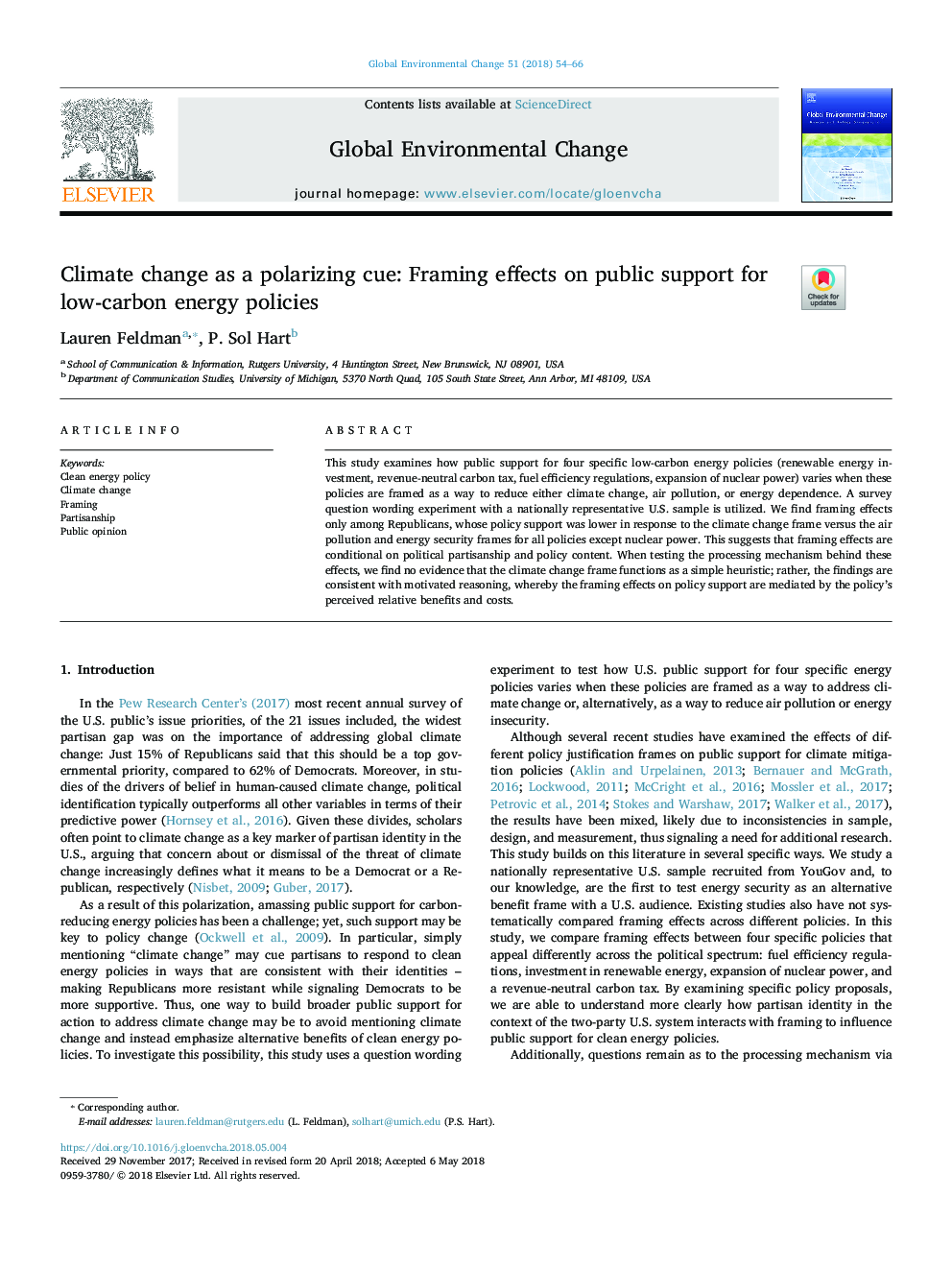| Article ID | Journal | Published Year | Pages | File Type |
|---|---|---|---|---|
| 7468775 | Global Environmental Change | 2018 | 13 Pages |
Abstract
This study examines how public support for four specific low-carbon energy policies (renewable energy investment, revenue-neutral carbon tax, fuel efficiency regulations, expansion of nuclear power) varies when these policies are framed as a way to reduce either climate change, air pollution, or energy dependence. A survey question wording experiment with a nationally representative U.S. sample is utilized. We find framing effects only among Republicans, whose policy support was lower in response to the climate change frame versus the air pollution and energy security frames for all policies except nuclear power. This suggests that framing effects are conditional on political partisanship and policy content. When testing the processing mechanism behind these effects, we find no evidence that the climate change frame functions as a simple heuristic; rather, the findings are consistent with motivated reasoning, whereby the framing effects on policy support are mediated by the policy's perceived relative benefits and costs.
Related Topics
Life Sciences
Environmental Science
Environmental Science (General)
Authors
Lauren Feldman, P. Sol Hart,
